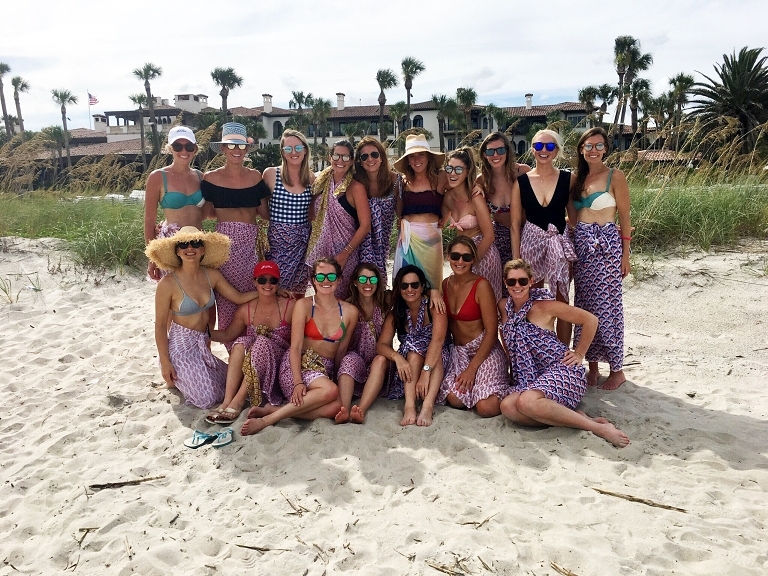
While we’ve extolled the virtues of choosing the perfect photographer and debated whether or not a videographer is worth your money, once you’ve decided to say “yes” to video, finding the right one is one of the most important tasks on your wedding to do list. A videographer spends just as much time with you as your photographer throughout the weekend—and the results: a sentimental, professionally produced film about your big day—can often bring tears to even a stranger’s eyes. (Our friend Rachel Jo’s LoveStoriesTV has made a business out of this!)
And yet, the wedding video can sometimes be overlooked: overpowered by decisions about the dress, the band, and the flowers, the video can sometimes get lost in the background. Gone are the days of VHS tapes filled with grainy footage of wedding cakes; with deft storytellers, drones, and HD cameras, wedding videography is more highly produced, and less invasive than ever before. Below, two leaders in the field lend some tips and tricks to choosing the right cameraperson for you.
“All I have from my grandparents’ wedding is a black and white photograph of them posing for a still camera,” says Ari Perilstein, celebrity wedding and event videographer and founder of Custom Made Productions in Los Angeles. “It would have been great to hear their vows, see them dancing, hear the music they listened to, and the speeches that were said. We are the first generation to truly capture these special moments in a cinematic way and be able to pass them down to generations to come,” he says.
The biggest regret for a bride post-wedding, Perilstein says, is not having the weekend captured on video. “So much happens on the wedding day and it flies by in a flash. Without video, you can’t experience the wedding quite like your guests did. The video/film allows you and your loved ones to experience that special moment in time, in a timeless way.”
When deciding what elements of wedding films you like most and want the videographer to focus on, Adrian Toto of Ira Lippke Studios recommends thinking through how you’d like the day to be captured.
“First ask, what matters most to you and your significant other—do you want every single moment captured? That would suggest a documentary style film, with priority given to thorough coverage at all costs. Do you want cinematic, beautiful and technically well-executed filming? That often implies more equipment, less mobility, more set-up shots, and more direction. Naturally, you may want both—but one style will always have priority over the other, so knowing what you prefer from the outset can be very helpful.”
To get a feel for what styles you gravitate toward, Toto suggests watching a few pieces from each artist in question—and not just one or two. Also ask to see their password protected portfolios, if possible.
“Try to discern if they follow a recipe in filming and later in editing. Some artists have a strong style they rarely veer from, and that can be a benefit—knowing precisely what the final product will look like. Some artists adapt their style depending on the circumstances of each wedding, and purposefully try not to deliver the same wedding film over and over.” Deciding what you feel most comfortable with—and how much direction (or lack of direction) you’d like to give the videographer both leading up to and day of will be elemental in your decision.
Both Perilstein and Toto recommend considering an engagement film prior to the wedding—not only for the opportunity to create another memory for you and your spouse, but also to give them a chance to get a better read on your personalities, which will pay off later when they film the wedding.
It’s also key to make sure that your photographer and videographer get along. If you’re using a videographer on the recommendation of a friend, ask them a few questions about what it felt like to work with them; if you’re using a videographer on the recommendation of your photographer, it’s pretty certain they’ll likely get along.
Lastly, “rather than thinking of your wedding video as an expense, look at it as an investment. You are investing in your legacy, for your children and their children,” says Perilstein. “There really is no price you can put on passing down something this special.”












